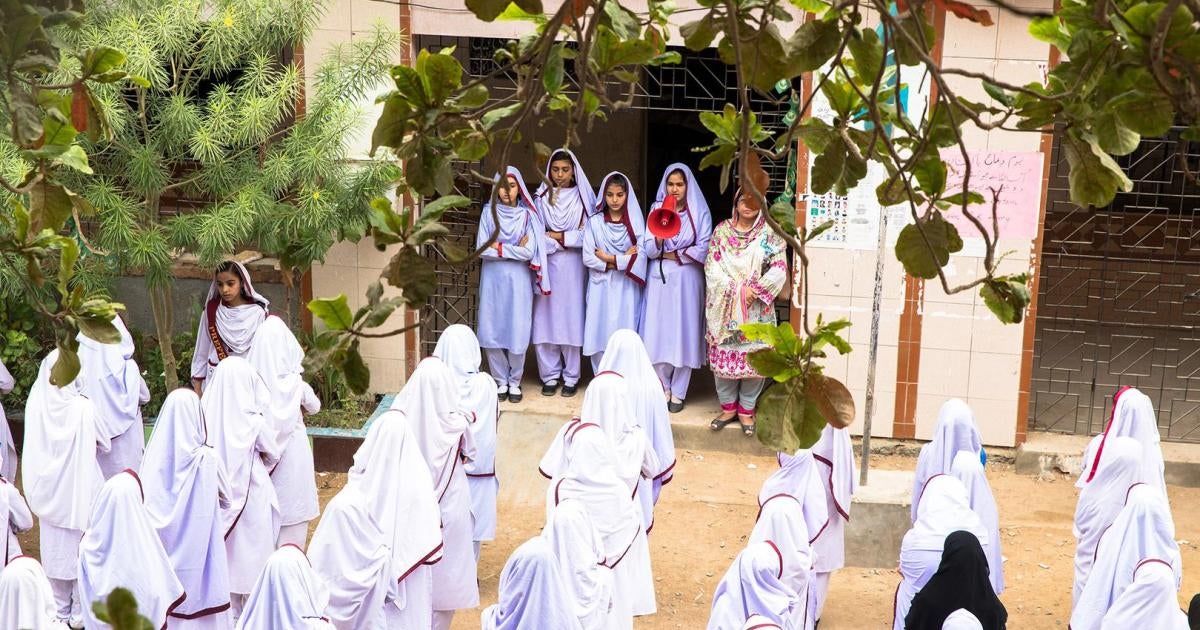
By Aftab Alexander Mughal
Christian and Muslim human rights experts and educational professionals asked the government to take measures for inclusive and equitable quality education for every child in Pakistan. During a conference on 2 August in Islamabad, speakers said that it was the state’s responsibility to provide education without discrimination and religious bias to every child.
The conference was organized by Centre for Social Justice (CSJ – a public policy organization headed by a Christian human rights defender) in collaboration with Idara-e-Taleem-o-Aagahi (ITA) and Human Rights Commission of Pakistan (HRCP) on “mapping the educational reforms in view of the next democratic tenure.”
Dr. Baela Raza Jamil, CEO Idara-e-Taleem-o-Aagahi said that education with learning is a lifeline for all citizens without discrimination. Pakistan remains lowest on key indicators of SDG 4 in South Asia failing to live up to Article 25-A, a fundamental constitutional right to education. Despite progressive manifestos, political parties repeatedly fall short of delivering what they promised, compromising, excluding, and crippling the lives of millions of children, especially girls and marginalized groups. May the coming elections, which are expected in coming months, be a new beginning for progressive education investment and delivery for all citizens protected with strong learning foundations.
Waseem Ajmal, Federal Secretary of Ministry of Federal Education & Professional Training assured that the ministry is committed to removing religious instruction and hate speech present in compulsory subjects to implement Article 22(1) of the Constitution.
Zubaida Jalal, a female member of the National Assembly (MNA) said that our primary aim in pursuit of educational reforms should be to cultivate equitable learning environments, where every student can access quality education and excel. Public education must be centered on creating inclusive spaces that empower students to become valuable and participative members of society. By building on these principles, we should strive to drive meaningful changes and advancements in our education system.
Mehnaz Akber Aziz, another female MNA, emphasized bringing out-of-school children into schools, quality education, and learning outcomes. She supported the cross-party caucus on inclusive education and proposed to initiate a scorecard of every legislator regarding their education-related interventions in their constituencies.
Farhatullah Babar, former Senator from Pakistan People’s Party (PPP) said that quality education should be a priority of the political parties to inculcate pluralistic values in children, and measures to transform schools into religious seminaries with single national curriculum and induction of madrassa graduates as teachers must be revisited.
Dr. A. H. Nayyar, an educational expert, said that the state has failed to implement the Article 25-A and provide free and compulsory education to all children under 16 years as nearly half the children are deprived of schooling on account of the failure of the state to provide the resources needed for the task. The political parties must promise in their election manifestos to enhance allocation to education by 6% of GDP.
Dr. Shoaib Suddle, Chairman of the One-Man Commission for Minority Rights (state-run body) said that the government has been violating the Order No. 2 of the Jilani judgment (SMC 1 of 2014, etc.) of Supreme Court of Pakistan and Article 22(1) of the constitution because school curriculum and textbooks of compulsory subjects like Urdu, English and Social Studies carry substantial content relating to the religious instruction of majority religion, compelling non-Muslim students to learn Islamiat in all courses.
Peter Jacob, Executive Director, Centre for Social Justice (CSJ) said that fulfilling and implementing Articles 22 (1) and 25-A of the Constitution of Pakistan on the right to education without discrimination, is a fundamental constitutional obligation and a pressing need for improving foundational literacy, and the quality of education. He added that civil society would continue to engage effectively with political parties for positive educational reforms before and after the elections in 2023.
Wajahat Masood, a renowned journalist. appreciated the landmark decision of the supreme court issued on 19 June 2014. He added that it is not possible to implement articles 20, 22 (1), and 25-A of the constitution in letter and spirit unless related laws and policies are made, likewise, as they are sectarian, religion-based, and discriminatory. He added the state of Pakistan needs to ensure the equality of citizens and discourage appeasing groups promoting division based on identity.
Dr. Prof. Yaqoob Khan Bangash, a prominent educationist, said that there must be social interaction among students from majority and minority communities inside and outside classrooms to promote inclusion, pluralism, and diversity.
Saima Anwer said that school curricula and textbooks should focus on promoting inclusion, diversity, critical thinking, and learning outcomes. Moreover, religious minorities should have access to suitable alternatives to compulsory Islamic education.
Sana Jamali, Senator, and convener of the Education Parliamentary caucus said that civil society, government, and politicians need to work together and take meaningful actions to educate all children who are out of school and drop-outs.
Dr. Ammar Ali Jan, President of the Haqooq-e-Khalq Party said that there is a need to allow critical thinking on campuses. It will only be possible if we stop viewing education from a security lens and start treating universities as sites for dialogue and debate. Moreover, we must plan our economy to ensure a university-jobs pipeline. It is unacceptable that so many bright young people with degrees are jobless. We must ensure that there are adequate jobs available for students graduating from universities.
Faaria Khan hosted the conference, while Harris Khalique from HRCP and Munizae Jahangir, a journalist, moderated the panel discussions on different topics focused on inclusive and equitable quality education and political parties’ commitment and actions for educational reforms.
